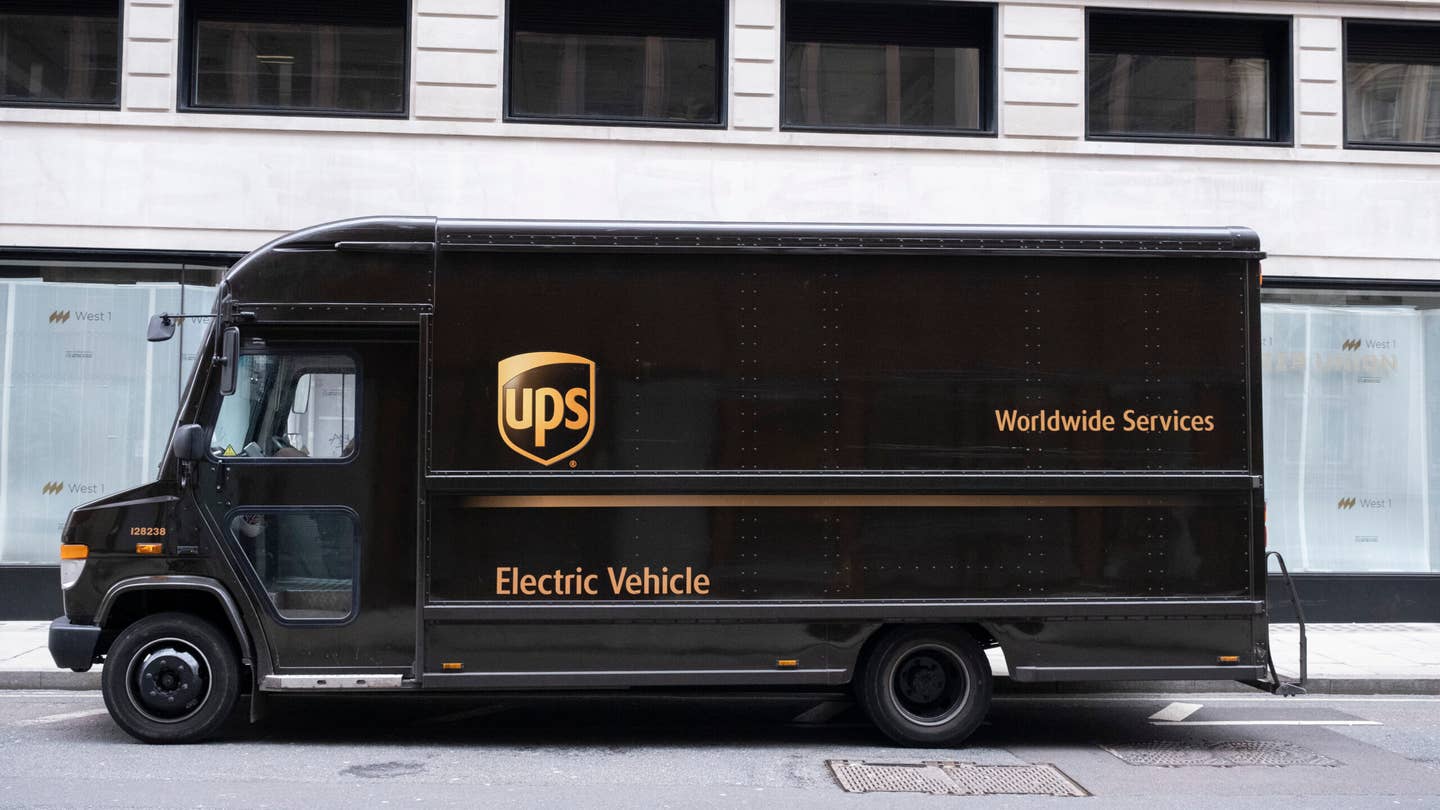The Last-Mile EV Delivery Truck Dream Is Hitting a Snag
UPS and FedEx are finding it harder to electrify their fleets than expected.

Major shipping companies such as UPS and FedEx have been touting plans to electrify their fleets for years, but their PR-friendly EV transition is quickly losing steam. Battery shortages across the auto industry are raising the cost of EV delivery vans and slowing down adoption among the largest commercial fleets. These shortages have created a bottleneck in EV step van supply, which in turn has lowered demand from big shippers like UPS and FedEx, who claim the EVs are cost prohibitive.
This has led to a classic chicken-and-egg problem for the delivery industry and its suppliers, with one analyst telling Reuters, "You need the demand to have the supply and you need the supply to have the demand. Getting both of them to work at the same time is the problem."
These problems are being worsened by electric van startups running out of money and closing down before ever reaching production despite large investments from shipping companies, as in the case of the UK-based Arrival. In 2020, UPS took a big risk on Arrival and placed an order for 10,000 electric vans. But by 2023, Arrival was cutting jobs in the U.K., and, around a year later, announced it had run out of money and was planning to sell off its remaining assets there. The company was even delisted from the Nasdaq.
This has left UPS in the lurch as far as EV startups go, and the company's vice president of fleet maintenance and engineering, Luke Wake, tells Reuters that the question is "how many of those (companies) will be here in five years, 10 years?"
In an ideal world, Arrival could have reached production and filled the UPS order, thereby adding 10,000 EV step vans to the carrier's fleet of 150,000 delivery vehicles around the world. But Arrival failed, and things are looking equally grim for other commercial EV startups such as Lightning eMotors, Workhorse, and Xos, all of which "have issued going-concern warnings," per Reuters.
The question that would follow from the failure of startups might then be about the role that legacy truck makers could play in UPS and FedEx's EV transitions. Longstanding truck manufacturers are, indeed, making electric vans, but the problem is these currently cost too much for delivery companies to buy en masse. Daimler Truck subsidiary Freightliner Custom Chassis Corp, for example, makes the MT50e, which is based on its proven MT platform. These trucks are quite different from delivery vehicles produced by EV makers such as Rivian, which has so far delivered 10,000 smaller EV cargo vans to Amazon across the U.S. and Europe.
The FCCC MT50e boasts a range of up to 180 miles and make 318 horsepower, which are output figures comparable or better to those of MT vans powered by either Cummins diesel or DriveForce V8 engines. The MT50e has a gross vehicle weight rating of up to 23,000 pounds, and it's powered by a 246-kWh battery that can fully charge in three hours via DC fast charging. But Reuters says the MT50e costs slightly over $260,000, which is roughly double the price of a combustion model.
Those high prices were once offset by incentives from individual states seeking to lower emissions. It makes sense to help the delivery industry—a major source of CO2 emissions—in this endeavor, so California offered purchase vouchers worth $60,000-$85,000 for a few years, kickstarting the EV transition for delivery companies. But the state changed eligibility terms for the vouchers in 2023, drastically reducing the subsidies, and is planning to eliminate incentives altogether in early 2025.
Current prices for EV step vans could be why UPS and FedEx have managed to rollout merely 1,000 EVs each. When you contrast the number of electric vans to those of UPS's global fleet of 150,000, the EVs make up a minuscule percentage of vehicles currently in service. Reuters cites data from CALSTART, which says that U.S. deployment of EV step vans peaked in 2021 at 275 models in total, and estimates say the numbers will max out at 250 models deployed in 2023. With numbers that low, it's going to be hard to fully-electrify fleets in the short timelines that UPS and FedEx promised. Doing that will require the help of federal regulation in the U.S., according to UPS executives.
Got tips? Send 'em to tips@thedrive.com
